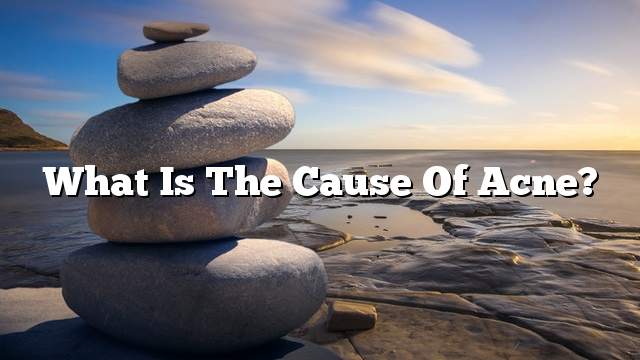Causes of acne
There are different types of acne, and the most common type of it is that develops during the teenage years because adolescence causes a rise in hormone levels, especially testosterone, which leads to the production of glands for more oils, where oil is excreted from the pores to protect the skin , And maintain its moisture, but at the beginning of acne mixed oils dead cells, and close the pores of the skin leading to the appearance of pimples.
Factors that aggravate acne
Hormones
Androgens are hormones that increase in boys and girls during puberty. They increase the size of the sebaceous glands, resulting in more sebum and hormonal changes during pregnancy, and the use of oral contraceptives That affects the secretions of the sebaceous glands, in addition to the low amounts of androgen that spread in the blood of women can lead to increased acne.
Friction or pressure
It can increase friction or pressure on the skin by different materials such as telphons, helmets, backpacks, or tight clothing collars and mobile phones from a worse acne problem.
Take certain medications
Drugs that contain corticosteroids, testosterone, or lithium.
Diet
Studies suggest that some nutrients may increase the problem of acne, including skim milk and carbohydrate-rich foods such as bread, cakes and fried potato chips. Chocolate is also expected to make acne worse. A small group of fourteen men suffering from acne that eating chocolate was a cause associated with increased symptoms.
Ways to avoid the appearance of acne
Acne can be prevented by:
- Remove makeup and clean the skin well before sleeping.
- Avoid wearing tight clothes.
- Use creams against acne without a prescription to remove excess oils from the skin.
- Avoid make-up products that contain oils.
- Shower after exercise.
- The face should be washed twice daily with oil-free detergents.
- Eat a healthy diet with the reduction of processed sugars that are taken.
Acne Treatment
Three drugs have proven effective in the treatment of acne: benzoyl peroxide, retinoids, and antibiotics:
- Benzoyl peroxide is available in over-the-counter medicines that may be available in the form of gel or lotion. It is targeted at surface bacteria, and its side effects can sometimes irritate the skin.
- Retinoids (vitamin A derivatives), which are also available in over-the-counter medicines, remove pimples, prevent pore blockages, and first damage to acne too. Therefore, these drugs should be applied to every affected area of acne ; To prevent the formation of acne blisters again, there are also a lot of side effects but the most common is irritability, which can usually improve with constant hydration and sustained treatment.
- Antibiotics, which are used by placing them on the skin, or taken orally, thus limiting the bacteria on the surface of the skin.
